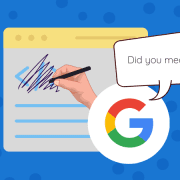Breaking Down Link Schemes Google Hates
Recently, Google updated the link schemes web page that gives examples of what Google considers to be spammy backlinks. The additions are pretty notable as article marketing or guest posting campaigns with keyword rich anchor text have been included. Advertorials with paid links and links with optimized anchor text in press releases or articles were also added.
With all the new additions, it can be hard to keep up to date with what Google is labeling spammy backlinks or backlink schemes. But, Free-SEO-News’ recent newsletter simply and efficiently lays out the 11 things that Google doesn’t like to see in backlink campaigns.
- Paid Links – Buying or selling links that pass PageRank has been frowned upon for a long time. This includes exchanging money for links or posts that contain links, sending ‘free’ products in exchange for favors or links, or direct exchange of services for links. It is pretty simple, buying links in any way will get you in trouble.
- Excessive Link Exchanges – While exchanging links with relevant other websites in your industry is absolutely normal for websites, over-using those links or cross-linking to irrelevant topics is a big sign of unnatural linking. Simple common sense will keep you from getting in trouble, just don’t try to trick the system.
- Large-Scale Article Marketing or Guest Posting Campaigns – Similar to the last scheme, posting your articles and guest posts on other websites it perfectly normal. However, doing it in bulk or posting the same articles to numerous websites will appear to be blogspam to Google. Also, if you do guest posts just to get keyword rich backlinks, you will see similar penalties. Only publish on other websites when it makes sense and offers value.
- Automated Programs or Services to Create Backlinks – There are tons of ads for tools and services that promise hundreds or thousands of backlinks for a low price and very little work. While they may do what they say, Google also easily spots these tools and won’t hesitate to ban a site using them.
- Text Ads That Pass PageRank – If you’re running a text ad on another website, you have to make sure to use the rel=nofollow attribute, otherwise it appears to be a manipulative backlink.
- Advertorials That Include Links That Pass PageRank – If you pay for an article or ad, always use the rel=nofollow attribute. Simply put, if you paid for an ad or article, it won’t do you any good and can bring a lot of damage if you don’t use the attribute.
- Links with Optimized Anchor Text in Articles or Press Releases – Stuffing articles and press releases with optimized anchor text has been a strategy for a long time, but Google has shut it down recently. If your page has a link every four to five words, you’re probably looking at some penalties.
- Links From Low Quality Directories or Bookmark Sites – Submitting your site to hundreds of internet directories is an utter waste of time. Most links won’t ever get you a single visitor and won’t help your rankings. Instead, only focus on directories that realistically could get you visitors.
- Widely Distributed Links in the Footers of Various Websites – Another older trick that Google has put the squash on was to put tons of keyword rich links to other websites in the footer. These links are always paid links and are an obvious sign of link schemes.
- Links Embedded in Widgets – It isn’t uncommon for widget developers to offer free widgets that contain links to other sites. It also isn’t uncommon for these developers to reach out to site owners and offer to advertise through these widgets. However, Google hates these links and considers them a scheme. I’d suggest against it, but if you do advertise through these widgets, use the nofollow attribute.
- Forum Comments With Optimized Links in the Post – It is very easy to get a tool that automatically posts to forums and include links to websites. It is a pretty blatant form of spam which won’t get any actual visibility on the forums and the links are more likely to get you banned than draw a single visitor.
There’s a pretty obvious underlying trend in all of these tactics that Google fights. They all attempt to create artificial links, usually in bulk. Google can tell the quality of a link and all of these schemes are easily identifiable. Instead, focus on building legitimate quality links, and use respected tools such as SEOprofiler. It will take longer, but you’re site will do much better.







Leave a Reply
Want to join the discussion?Feel free to contribute!